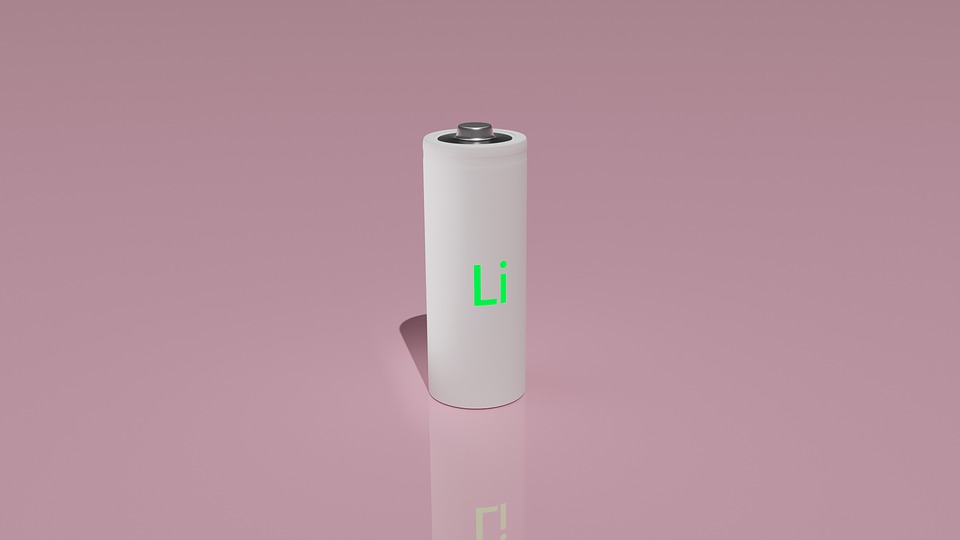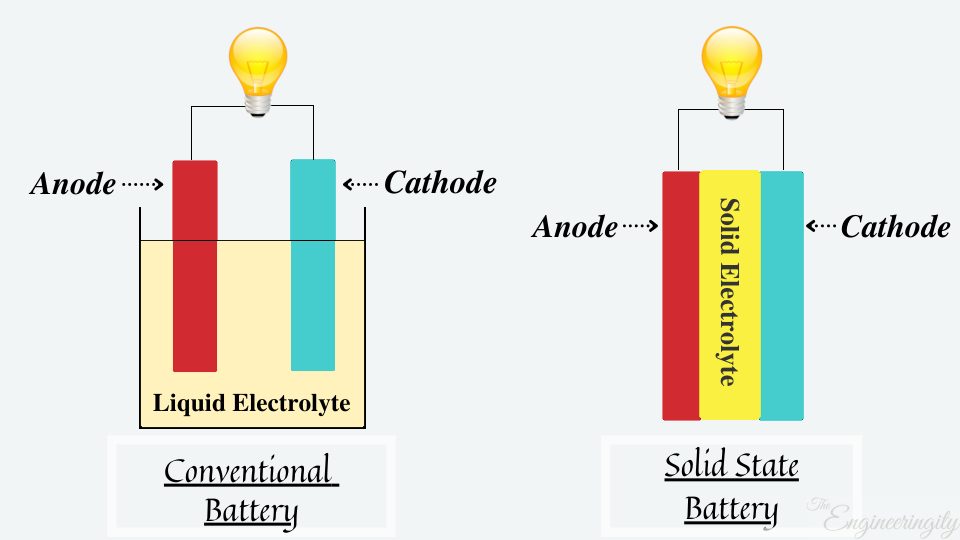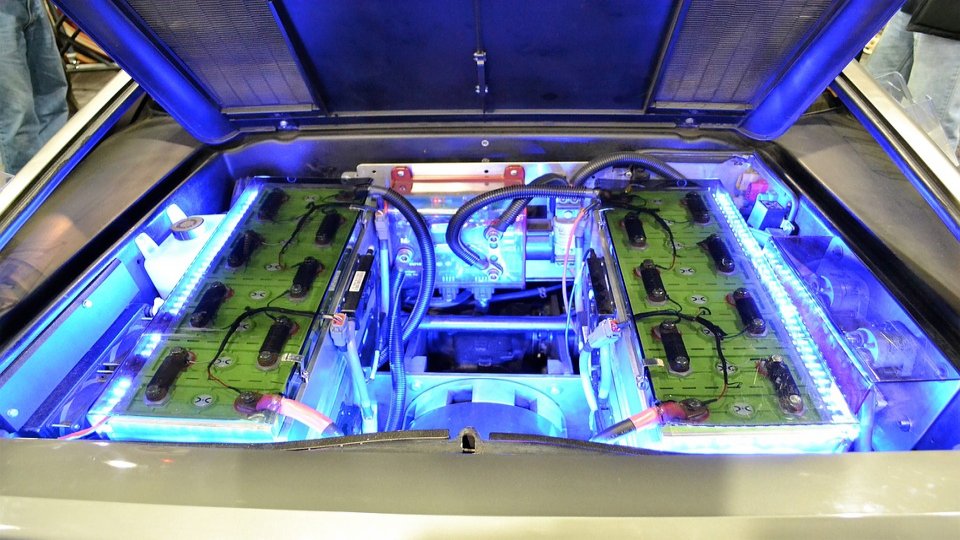Have you seen a few pictures of smartphone explosions, if you have noticed them carefully, the reason is the battery behind them? Those batteries use a liquid electrolyte, the liquid electrolyte is flammable and the chances are high for exploding of the battery.
But what about pacemakers and RFID readers? Pacemakers and RFID readers use solid-state electrolytes in their volatile batteries, and the chances of exploding are almost negligible. Solid-state batteries are the future of battery technology and consumer electronics and electric vehicles.
What Solid-state Batteries are?
- In solid-state batteries, the electrolyte used is solid form. An example of it is Lipon Lithium phosphate glass.
- Compared to liquid electrolyte batteries(Conventional batteries), solid-state batteries are high in energy density because in liquid electrolytes large separators are used between the liquid cells.
- Whereas solid-state batteries require a very thin barrier to prevent a short circuit.
- Solid-state batteries can pack in as much energy as lithium-ion and normal liquid electrolyte battery separators come with 20 to 30 microns thickness. Whereas solid-state batteries can decrease this separated distance down to 3 to 4 microns charging time.
- Solid-state batteries can charge 6 times faster than liquid-state batteries.
The lifespan of solid-state batteries
 |
| Lithium-ion battery |
Liquid electrolyte batteries need to replace after 3 to 5 years, whereas solid-state batteries can last up to 10 years. Coming to fire-resistant liquid electrolyte batteries suffering from manufacturing defects there are changes to explode.
Whereas solid-state batteries won't explode or catch fire if they suffer from manufacturing defects there are 8 solid-state electrolytes available but lithium phosphate glass is mostly used nowadays.
Why Solid-State Batteries are better than liquid electrolyte batteries?
The advantage of lithium phosphate glass batteries has excellent stability with only 5% capacity reluctance after 40,000 charge cycles. Lithium phosphate glass batteries could survive anywhere from 40 to 130 times longer than lithium-ion batteries before they need replacing.
But why solid-state batteries are not widely used in consumer electronics and electric vehicles the reason is Simple solid-state batteries are expensive as compared to liquid electrolyte batteries.
Where are they used?
A company named Quantum Scape is working for 10 years on solid-state batteries that came with lithium-ion batteries.
These solid-state batteries are used in electric cars, and many car companies have opted for it tesla, tesla cars are running on solid-state batteries which are highly efficient and growing as the years are passing.
As the years passed Toyota, a car company also working on solid-state batteries, soon they are planning to launch its electric vehicle in the 2021 Summer Olympics.
Conclusion
We can clearly see how these solid-state batteries will be the future of electric vehicles and grid energy storage. Solid-state batteries are still developing because their solid electrolyte is not an efficient conductor mostly in higher temperatures.
But this solid-state battery will evolve and have a significant impact on the car industry as well as consumer electronics in the coming years.










5 comments
Sweet bro👍
ReplyDeleteThank you, I really appreciate you taking the time to express that 👍
DeleteAwesome Bhai
ReplyDeleteI really put a lot of efforts into this, Thank you for noticing 👍
Delete"tesla cars are running on solid-state batteries which are highly efficient and growing as the years are passing."
ReplyDeleteTesla cars do not utilize solid state batteries.
comment down what do you think?